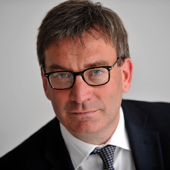Control Risks, the London-based business risk consultancy, has published its annual RiskMap report.
That’s the consultants’ guide to political and business risk as a guide for policy makers and business leaders seeking to plot global trends. RiskMap highlights underlying trends in global risk and security. The report suggests 2016 will be a challenging year for businesses, as they are forced to navigate escalating security and political risks.
Perhaps the biggest potential disruption of all – another global financial crisis – could be triggered by any combination of an end to cheap money, a Eurozone crisis, or a Chinese hard landing. But political and security concerns need not translate into a major business downturn. Control Risks expects that the relative political stability of western democracies potentially to give their economies a renewed competitive advantage over developing economies (such as China and India), which are confronting slowing growth and the prospect of political unrest.
Comment
Richard Fenning, pictured, CEO, Control Risks, said: “We live in an age of surprises. We have seen very clearly how agile start-ups can subvert entire industries, how firebrand celebrities can single-handedly alter a country’s political landscape, how corrupt governments can be jolted into reform by angry protests, how terrorists can use social media and the internet to revolutionise their operations, and how skilled cybercriminals can steal sensitive data from even the most secure corporate databases.
“These risks – and many others – will continue to threaten unprepared businesses. Whether it is the see-sawing balance of economic power between the East and the West, uncertainty about the future of commodities prices, the disconcerting metastasis of IS, the ramifications of China’s adjustment to its new economic reality, or an explosion in the frequency and severity of criminal cyber-attacks, successful businesses will need to prepare themselves to face tough challenges on a number of fronts.
“It would be easy to think the world has never been more unsettled, or unpredictable, than now. But businesses and investors would do well to remember that, despite the many risks and challenges that 2016 will present, the world has always been a shifting and unpredictable place. That may be little comfort if your boat is sinking off the Greek coast, if your company is left stranded by an unforeseen technical innovation, or if you have just discovered a 16-year-old hacker at large in your network, but it is important to remember that the world remains full of promise for the well-prepared investor. Risk is a necessary precondition for opportunity, and 2016 will be no exception.”
Among the Control Risks suggestions:
The cyber threat will grow as more nation states engage in cyber operations and criminal attacks on corporate networks become increasingly damaging.
Uncertainty over China’s capacity to adapt to a new era of 6pc growth has the potential to send jitters through global markets.
Presidents Obama, Putin and Xi are locked into an impasse, each grappling with his own domestic issues and nullifying the others’ influence overseas.
Civil society activism is flourishing, threatening unwary business with serious reputational damage.
Al Qaida regroups in the Yemen and elsewhere, while IS continues to entrench its ‘caliphate’ in the Levant.
Europe is fractured, dealing with growing nationalism at home and failing to provide co-ordinated responses to challenges such as terrorism, regional security threats and migration.
In a series of essays, regional reports, and analyses, RiskMap 2016 examines risks, opportunities and trends that businesses will face in 2016, including:
‘Pendulum Swing’: Solid growth and relative stability may fortify the world’s core economies, giving them an advantage over developing markets in 2016. The pendulum of power might still swing away from the West eventually, but it won’t happen as quickly as many people expect.
Chinese slowdown: China’s period of adjustment to a new norm of 6pc growth will raise difficult questions over the Chinese government’s capacity to manage its economy, as well as the effectiveness of its ‘Made in China’ strategy.
Obama, Putin and Xi. The (re)emergence of Russia as a significant international power coincides with Presidents Obama and Xi focusing on tough domestic issues.
Cyber-risk: Cyber-attacks are becoming more sophisticated and harder to defend against. More nation states are developing cyber capability, and attacks against key industrial networks are becoming increasingly devastating.
Terrorism: The global terror threat will continue to evolve, with the rapid emergence and entrenchment of IS in Iraq and Syria, the long-term reorientation of al Qaida, and continued violence in West Africa and the Sahel.
The ‘commodities supercycle’: Many analysts say that the ‘commodities super-cycle’ is history, but prices are low now only as a result of anaemic global growth and some dubious purchasing practices. Commodity prices are undoubtedly in a trough, but they are ripe for a recovery as the decade continues.










